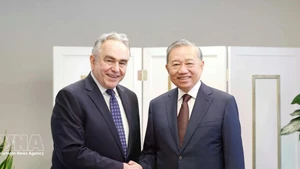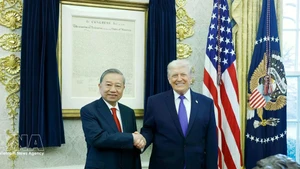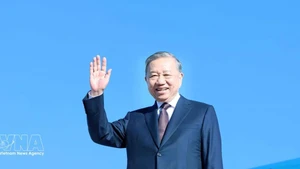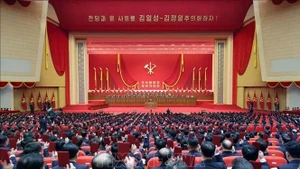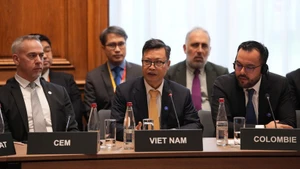Driving regional and global integration
As a proactive, active and responsible member of the association, Viet Nam has played a constructive role and has gained growing influence in the region, earning high praise from the international community.
Ahead of ASEAN’s founding anniversary, the Secretary-General noted that Viet Nam’s development, transformation and growth had made significant contributions to ASEAN in every respect, turning the “S-shaped strip of land” into an important piece of the puzzle that has helped ASEAN become stronger, more self-reliant, and more dynamic.
Professor Hal Hill of the Crawford School of Public Policy, Australian National University, observed that joining the association had opened doors for Viet Nam to learn and engage, but more importantly, Viet Nam had successfully combined regional integration with domestic reform. He emphasised that the Doi Moi (Renovation) policy launched in 1986 was the foundation that enabled Vie Nam to seize the opportunities ASEAN offered.
Viet Nam proactively advanced integration while improving its investment environment, expanding economic cooperation and building the image of a dynamic and responsible nation in the region. From a backward economy, Viet Nam has risen to become one of ASEAN’s most dynamic economies in the 21st century.
Thirty years ago, few could have imagined that Viet Nam would surpass the Philippines in per capita income, yet this has now become reality. According to Professor Hill, Viet Nam is steadily moving closer to the ranks of upper-middle-income countries.
After joining ASEAN in 1995, Viet Nam took full advantage of regional economic cooperation mechanisms, particularly within the ASEAN Economic Community (AEC). As a result, it is now the bloc’s third-largest exporter of goods, with key items including electronics, textiles, and agricultural produce.
Beyond intra-bloc cooperation, Viet Nam has actively expanded external economic partnerships by signing major trade agreements such as the ASEAN+ free trade agreements, the Regional Comprehensive Economic Partnership (RCEP), and the Comprehensive and Progressive Agreement for Trans-Pacific Partnership (CPTPP). These have helped attract investment from global giants like Samsung, Intel and Apple, boosting high-tech growth, especially in digital fields such as 5G and artificial intelligence. Viet Nam has also invested heavily in developing seaports, airports, and railways, thereby helping to create a regional connectivity network and demonstrating leadership in regional and international integration.
According to ASEAN Secretary-General Kao Kim Hourn, over the past three decades, Viet Nam has contributed significantly to promoting and maintaining peace, stability, and security in ASEAN, expanding and enhancing the bloc’s prosperity, and strengthening its external relations. Dr Kao Kim Hourn described Viet Nam as a highly influential ASEAN member. Through its dynamism, Viet Nam has helped strengthen ASEAN’s role, not only regionally but also globally, via ASEAN-led mechanisms.
Viet Nam’s development, transformation and growth have contributed to ASEAN across political, diplomatic, security, economic, cultural and social spheres, enabling the bloc to become stronger, more self-reliant, and more dynamic. Throughout its 30 years with ASEAN, Viet Nam has not only participated but also shaped major policies such as drafting the ASEAN Charter, formulating the ASEAN Community Vision 2045, and designing the ASEAN Connectivity Master Plan. The important initiatives and documents promoted by Viet Nam have become a solid foundation for cooperation within ASEAN as well as between ASEAN and its partners.
Through these efforts, Viet Nam has raised its political profile, expanded its foreign relations, enhanced its standing at regional and international forums, and earned the trust of both member states and partners. From this perspective, the Secretary-General affirmed that Viet Nam is an exceptionally important member state.
Towards the ASEAN Founding Day on August 8, many international experts believe that to avoid division caused by individual national interests, ASEAN must continue to build a united community that is unified in action in order to maintain its position and enhance its central role within the rapidly changing regional framework.
A bridge between mainland and maritime ASEAN
With its constructive role and influence over the past three decades, Viet Nam is recognised as a bridge linking mainland and maritime ASEAN, fostering sustainable connectivity and integration across the region.
Thong Mengdavid of the Institute for Internation and Public Policy, Royal University of Phnom Penh, noted that during its ASEAN chairmanships, Viet Nam focused on narrowing development gaps between member states and steering the association through crises, such as the Covid-19 pandemic. Mechanisms initiated or proposed by Viet Nam demonstrated ASEAN’s leadership and unity in times of urgency.
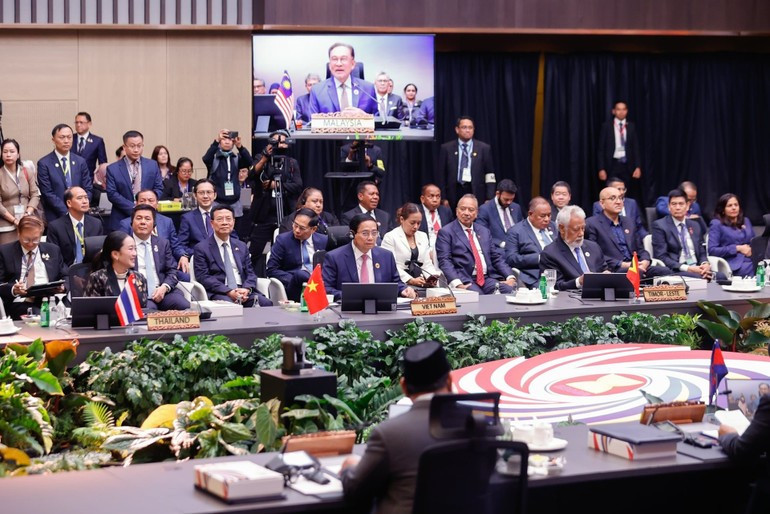
Regarding security, Viet Nam has consistently advocated for peace, stability, and order based on the rule of law in the region, especially in the East Sea (South China Sea). Viet Nam supports ASEAN’s efforts to expedite the finalisation of the Code of Conduct (COC) draft between the parties in the East Sea (South China Sea) and China.
Professor Ruhanas Harun from the National Defence University of Malaysia stated that Viet Nam is the most important and largest member among the new ASEAN entrants, and can therefore play a mediating role within ASEAN when conflicting viewpoints arise.
In the face of complex global geopolitical developments, both ASEAN and Vietnam face new challenges: great-power rivalry, regional conflicts, and trade barriers. In this context, Viet Nam plays an important role in promoting peaceful cooperation and resolving conflicts through diplomacy.
A striking example was Viet Nam’s hosting of the 2019 United States–Democratic People’s Republic of Korea Summit in Ha Noi, which demonstrated its capacity, standing and credibility in fostering peaceful dialogue and building trust in the region, further strengthening its position in ASEAN and globally.
As the ASEAN Chair in 2029, Viet Nam can promote the growth and development of ASEAN while continuing to be a driving force for the region, based on a stable political foundation and strong foreign investment attraction.
The ASEAN Secretary-General stated that Viet Nam is a typical success story of reform and integration, adding that if it maintains its rapid and sustainable development pace it can fully achieve the goal of becoming a high-income country in the near future. Accordingly, Viet Nam will make even greater contributions towards a united and prosperous ASEAN.
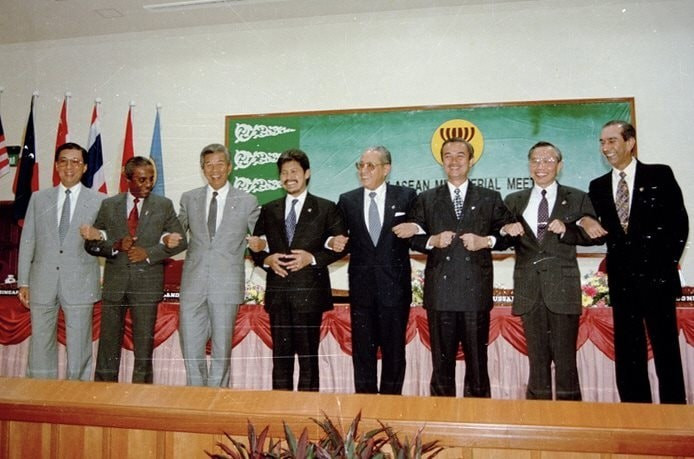
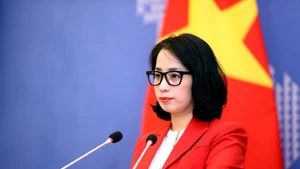

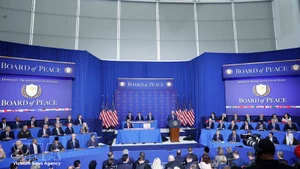
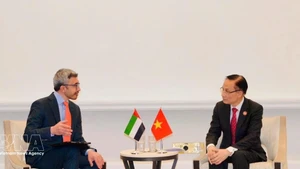
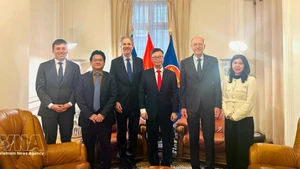
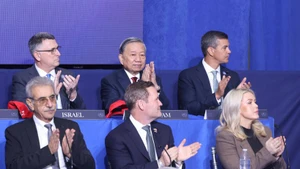
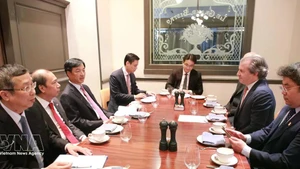
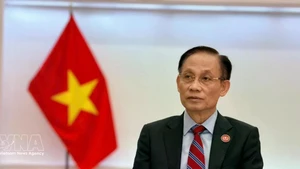
![[In pictures] Party General Secretary To Lam meets US President Donald Trump](https://en-cdn.nhandan.vn/images/dcd63867a0eed4c7753eb4bfb346593abc1ce710dfab8ad1b9aebd75ea6bf930b2ea13e4664779d689ba40aadd80f76d5d05d1208720fd7b0d811ace3a3297321c78cf738400e136e3f2d8790b24d43646e46edbe19517144a88f6ffb0d528f153574a7109328cc0949e4a4c16433c2ff751541639eefe4490518227264cbf8e/vna-potal-tong-bi-thu-to-lam-gap-tong-thong-hoa-ky-donald-trump-8599945.jpg.webp)
